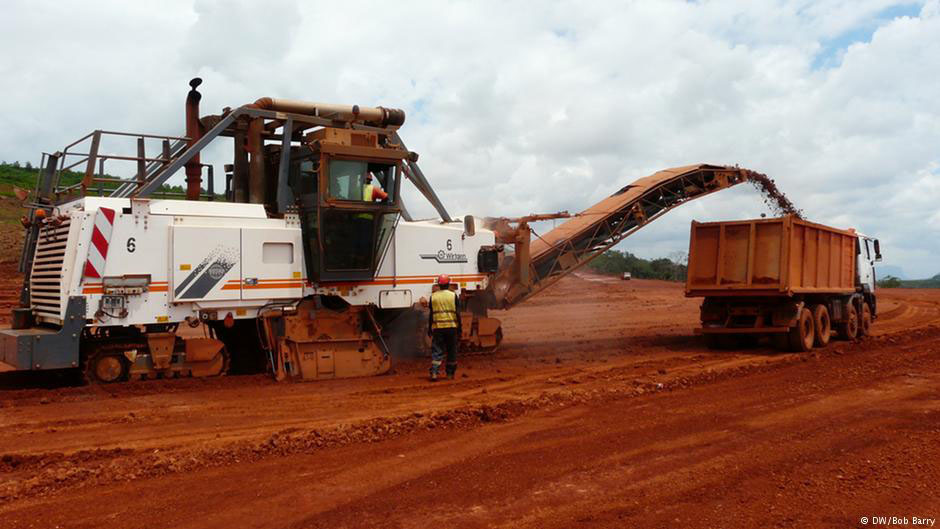Two debilitating rounds of United States sanctions last year have not been able to prevent Russia’s aluminium giant RUSAL from turning in end-of-year production levels that point to significant increases for both the fourth quarter of last year and the entire 2018, the independent news site, the Aluminium Insider, disclosed in a Saturday February 9th news report.
The report puts the company’s bauxite production for the final quarter of 2018 at 943,000 metric tonnes of primary aluminium, an increase of 3,000 metric tonnes over the previous quarter.
The Insider’s report on RUSAL’s bauxite production for the fourth quarter of 2018 reflected production levels at 3,719 thousand metric tonnes, a figure which it says was “down a shade” on the 3,848 thousand metric tonnes realised in the previous quarter.
According to The Insider report, RUSAL’s bauxite production levels continue to depend heavily on its returns from the ore-rich Kindia bauxite mines in the West African state of Guinea, where the Russian company has been a significant and long-standing investor in the bauxite industry. Guinea’s estimated forty one billion-tonne bauxite reserve is the largest known reserve anywhere in the world.
Of RUSAL’s 3,719 thousand-tonne fourth quarter 2018 bauxite production level, Kindia contributed 909,000 metric tonnes.
The Aluminum Insider report puts RUSAL’s overall bauxite production for 2018 at 13,847 thousand metric tonnes, up by 18.9 per cent from last year’s total of 11,645 thousand metric tonnes. In this instance, too, Guinea’s Kindia mine led the way with a yearly production level of 3,451 thousand metric tonnes.
Despite being favoured with the world’s largest bauxite deposits, Guinea has lagged behind in bauxite production compared with other ‘heavy hitters’ in the global bauxite industry including Australia, Brazil, China and India. That has changed since the entry of Chinese and Russian companies into the industry there.
One of the interesting features of Guinea bauxite, a primary attraction for RUSAL, is its low reactive silica content which makes it favourable for global alumina production. The composition of Guinea’s lateritic bauxite also renders it suitable for low temperature alumina refineries.
For all its bauxite riches, Guinea has had to do without a refining capacity after more than half a century of independence and much of the bauxite extracted from the country’s mines leaves the port of Conakry by ship for RUSAL’s operations in the Ukraine. There aluminum is produced from bauxite and exported all over the world.
More than seven years ago the country’s National Transitional Council approved a new mining law under which the government seeks to increase returns from the sector. The idea is for the state to get up to a 30 per cent share of the mines which make large profits from the extraction of bauxite and iron though enforcement efforts have been met with vigorous pushback from the mining companies which are owned by foreign companies, including RUSAL. While the Guinean government may be concerned that its actions might violate international law, scare off international investors or both, it has been known to be seeking external help to realise its objective.
RUSAL, according to reports, has been known to express concern that expatriate mining companies may be adversely affected by the new law.
If no one accuses RUSAL of not making investments in infrastructure in communities close to bauxite extraction operations including Kindia in areas such as water, electricity and schools, the feeling among Guineans is that the Russian input is hugely disproportionate to what it takes out.
A long-existing agreement between Guinea and the mine operators stipulates that RUSAL should give back 0.01 per cent of its profits per ton of its bauxite production. The funds are expected to go to the Kindia province although differences between the Russian company and the Guinean authorities are known to occur over what is felt to be the company’s disproportionate ‘give back’ to the country that has done much to build its power base as a global powerhouse in aluminium production.








